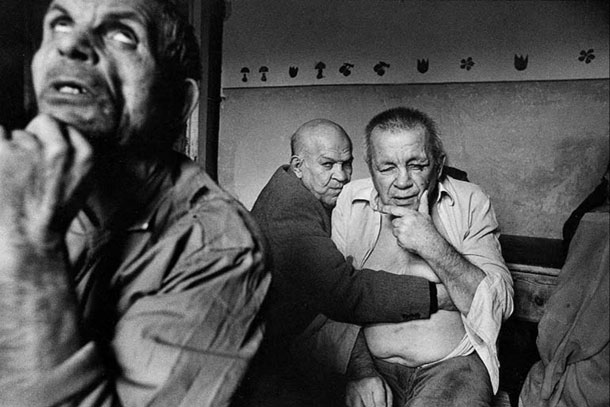Not that THEME is the philosophizing photographer’s site. But we like to dwell upon things that are contrarian at times and not always mainstream. You should find on THEME what you don’t always find on other sites. This horse, however, has been beaten to death many times already — the question what’s more important: sensor, lens, pixel quality or… We all know that in the end it all comes down to the photographer. Let’s assume the photographer is a capable individual. What other factors contribute most to a digital camera’s image quality? Or rather: to a quality image? Because IQ, at best, is merely a component of QI.
The quest starts with the sensor size. You may have a little stunner of a camera with the, say, Sony RX100 Mark II, but there is no denial that the albeit relatively large sensor (for this size of a compact camera) is considerably smaller than an APS-C sensor. That doesn’t prevent the little Sony from having even more pixels than many current APS-C cameras.
Doing the math you find out that an RX100 II pixel is roughly a fourth the size of common APS-C sensors’. So what’s the trade-off? That I’m locked into a much deeper depth of field? That larger sensors gather more light and thus have less noise? That a choice of lenses that usually comes with APS-C cameras offers much more latitude in terms of focal lengths. Last but not least add the compact cameras’ usually subpar AF performance.
As a rule of thumb estimate: the bigger the pixel = the more quality light it sucks in. But there is so much more to photography than plain physics. Take the little Sony’s size and weight, enabling so much convenience — in a package with functions that ought more serious cameras cause to blush. But what am I sacrificing in terms of ultimate image quality? As opposed to an ultimate quality image?

In terms of the sensor, the most important elements are its size, pixel count, a CCD’s read noise, dynamic range a.k.a. full-well capacity, color filter array (CFA) and AA filter. Assuming all else is equal, a larger sensor delivers higher IQ. All else equal, more pixels deliver higher IQ. All else equal, less read noise delivers higher IQ. The impacts of dynamic range, CFA and AA filters are a little more complicated.
But aren’t we running in circles? Because sensor size impacts various aspects of image quality that aren’t affected by lenses. And lenses affect other aspects of image quality that aren’t affect by sensors. The lens used may matter less or may matter more, depending on the sensor used and shooting circumstances…
For now we can conclude that there is no trade-off with a compact if being locked into deeper DOFs is a plus, if the noise of a smaller sensor is acceptable and if the less flexible lens covers the focal lengths one needs. By all means, go with the compact, right? Unless some operational difference, such as AF speed, is important.
The little Sony can be ridiculously good even at high ISOs. It depends how one judges IQ, but most people are likely surprised by how good the compact’s IQ is, and not by how inferior.
And we haven’t yet even gotten into the old all-important equivalence debate… To speak with Joseph James, author of an excellent equivalence manifesto, the very equivalence debate is where the sensor vs. lens vs. pixels debate comes to a halt. Because… what is IQ… and how can it be “detected”?
The first step in defining “IQ” is to make the distinction between “image quality” and a “quality image.” This distinction, in turn, requires us to differentiate between “eye candy” and “meaningful” photos. The easiest way to distinguish between these two classes of images is that “eye candy” requires high IQ to be successful, whereas “meaningful” photos are successful regardless of the IQ. Typical examples of “eye candy” would be sunsets, posed portraits and macro. Examples of “meaningful” photos are harder to nail down, since most photos would be “better” with “higher” IQ. Nonetheless, it is important to acknowledge that there is a class of photography where image quality, as opposed to a quality image, is all but irrelevant.
To prove this article’s point, you might want to check out the photography of Tim Dirven. Lousy image qualities with noise, etc., you name it! But outstanding quality images.


